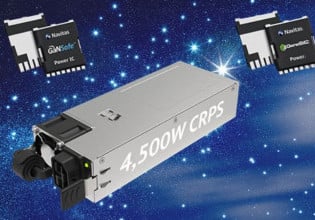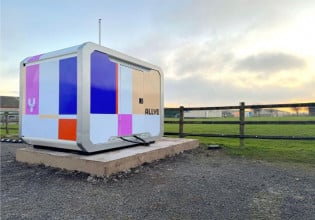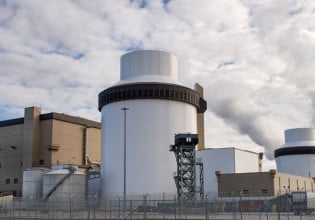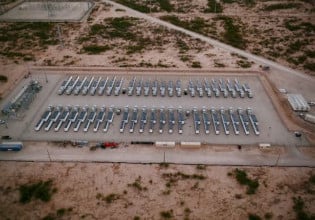DC Energy Meter Delivers Accuracy for EV Fast Charging
The new DCT Series DC Energy Meter from Carlo Gavazzi is designed to meet the high-performance metering requirements of next-generation DC fast-charging stations for electric vehicles.
Based in Milan, Italy, automation component supplier Carlo Gavazzi is releasing the DCT1 DC Energy Meter designed specifically to meet the high-performance metering requirements of electric vehicle (EV) fast-chargers.
DCT Series DC Energy Meter. Image used courtesy of Carlos Gavazzi
Access to reliable and safe fast-charging is widely recognized as essential to the broader adoption of EVs, and energy metering is an essential function to ensure that fast-charge transactions are executed fairly and properly for both the consumer and supplier.
The DCT Series is a flexible, simple, and compact energy meter designed for accurate energy measurement in DC fast-charging and other direct current applications like PV energy storage, industrial systems, and microgrids.
Designed for global markets, the DCT1 is capable of meeting the wide range of international standards that govern EV supply equipment (EVSE).
DC Fast-Charging
DC fast-charging, also referred to as Level 3 charging, is the highest power EV charging convention with the shortest charge times. Bypassing the onboard charger (OBC), a DC fast charger directly charges the EV’s battery pack through the DC battery bus at much higher power levels than Level 1 or 2 AC chargers.
Level 3 fast-chargers can deliver several hundred kilowatts of power, supplying charge energy to the battery bus at up to 800 V or higher. A fast-charger can fully charge a standard EV battery in well under one hour.
DC fast-charging bypasses the OBC. Image used courtesy of onsemi
Billing for EV Charging Services
As with filling an ICE (internal combustion engine) vehicle at a gas pump, accurate metering and billing are essential to providing EV charging services. The DCT1 energy meter allows charging station operators to accurately measure the amount of energy delivered to an EV battery during a charge to ensure that the consumer is properly billed.
For DC fast-chargers, the AC-DC meters that measure grid power supplied to the charger are not suitable for consumer billing since they don’t account for conversion losses between the AC input and DC output of the charger.
Along with its positioning on the DC output side of the fast-charger, the DCT1 uses cable loss compensation to make sure the consumer is only billed for the energy actually delivered through the vehicle charge port.
Metered EV charging with the DCT1. Image used courtesy of Carlo Gavazzi
DCT1 Energy Meter Performance
The DCT1 can measure voltages as high as 1000 V and currents up to 600 A with an energy resolution of 0.0001 kWh. The meter is capable of measuring the energy and ampere-hours delivered by a fast-charger, along with the power, voltage, and current levels.
A Modbus RTU or SML communication port allows for measured data to be communicated via RS485 protocol to the controller, or other systems, with a 200 ms refresh rate.
Configuration software for the meter can be downloaded for free from the Carlo Gavazzi website and can be used to configure the meter or monitor its data output through the RS485 interface with a PC.
DCT1 configuration and monitoring software. Image used courtesy of Carlo Gavazzi
Measuring DC Energy
DC energy in a system is typically measured with some form of current sensor followed by an analog-to-digital conversion circuit. Voltage and current data are passed to a digital signal processor (DSP) to perform power and energy meter calculations, which can then be communicated via interface to the larger system.
DC energy meter architecture. Image used courtesy of Analog Devices
Common current sensors used for DC energy metering include shunt resistors, open and closed loop Hall Effect sensors, and fluxgates.











